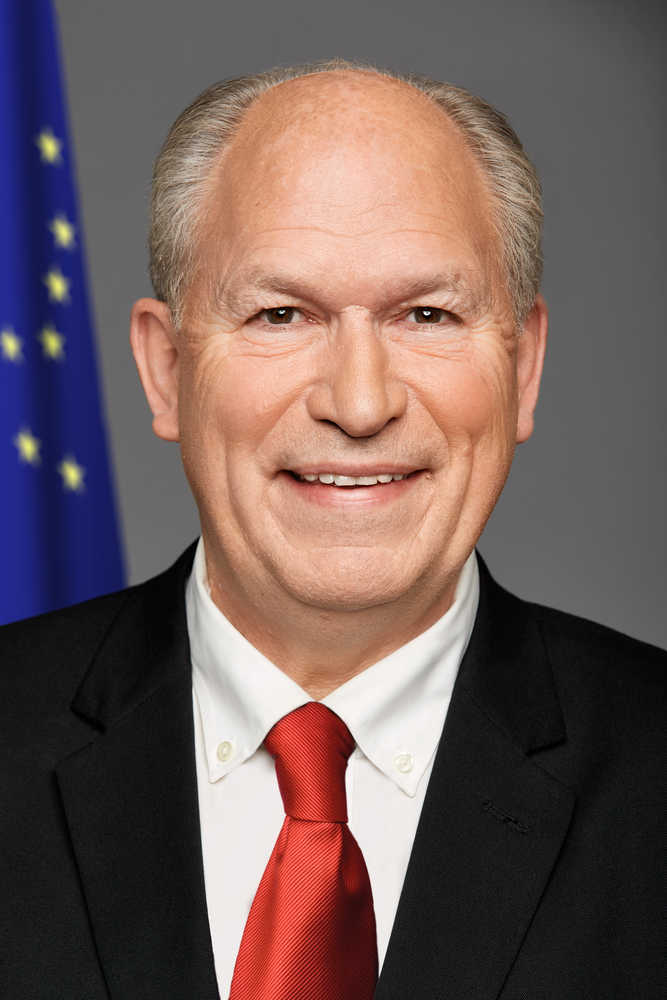Next weekend, Lt. Governor Byron Mallott and I will kick off a series of conversations about the future of our state.
The essence of these conversations is: What do we want our state to look like? What services do we want our government to provide? How will we pay for those services?
As most of you know, the price of oil fell precipitously over the past year, and with it, Alaska’s biggest source of revenue. Alaska’s budget for the coming year proposes to spend $5 billion in state general funds. We expect to receive only $2 billion in general fund revenue. That leaves a gap of $3 billion.
When your family’s income plummets, you have two basic options: spend less, and earn more. The State of Alaska is no different.
We started by reducing spending. My administration proposed a budget that reduces state agency spending by just under $800 million. Legislators made further reductions; the final amount is uncertain until the Legislature passes a fully funded budget.
The fact is cutting the budget is not as easy as it might seem. We have to pay back our creditors for money borrowed to build schools and other infrastructure. We are obligated to pay public employee retirement costs. Our state constitution and common sense dictate the need to provide for public education, public safety, and public health.
The Legislature’s finance director, David Teal, points out that if we laid off every state employee whose salary comes from state general funds, it would still not balance the budget.
We simply can’t cut our way to a balanced budget. Nor should we gamble on a rise in oil prices. Global experts predict an extended period of low oil prices. Even if prices were to recover to $100 per barrel, it would not generate enough revenue to cover current levels of spending.
Fortunately, Alaska has $10 billion in our constitutional budget reserve, money legislators wisely set aside during the recent years of high oil revenue. That money can be used to balance the budget in the short term, but is expected to run out by the end of 2018 – regardless of whether we cut the budget by another $100 million or so this year.
In my State of the Budget address in January, I said that the state’s fiscal situation presents both a challenge and an opportunity.
The challenges are obvious. The opportunities might be less clear. The first opportunity I see is an opportunity to tap Alaskans’ collective wisdom and ingenuity.
This is why I am turning to you. I am dedicated to maintaining public trust by involving Alaskans in decisions that will affect all of us. Through teamwork and respect for the voices of all Alaskans, we can develop the best solutions.
We will initiate these conversations in Fairbanks June 5-7 with a weekend event, “Building a Sustainable Future: Conversations with Alaskans.”
Invited participants will hear from experts within and outside government, and will begin a dialog about what we want from our government, and how we can pay for it going forward.
The event will be open to the public and the press to observe, and will include an interactive web component so Alaskans can participate from around the state.
The June event is just the start of conversations that will continue throughout the state. We will post recordings and user-friendly materials online, and encourage Alaskans to use these materials to host conversations in their communities.
Alaskans have always been at our best when facing a challenge. We pulled together for statehood. We overcame the devastating 1964 earthquake. Now we are faced with creating a sustainable future for ourselves.
Self-determination was at the heart of our quest for Statehood. Alaskans wanted to control the future of this state. Once again, Alaska is at a decision point. With oil revenue alone unable to sustain us, how do we chart a new course?
It’s time for us to pool our collective energy and ingenuity, and take control of our destiny.
I welcome you to the discussion.
Bill Walker is governor of Alaska. For more information on Sustainable Future Conversations, please visit gov.alaska.gov/sustainablefuture


